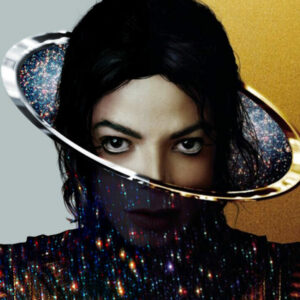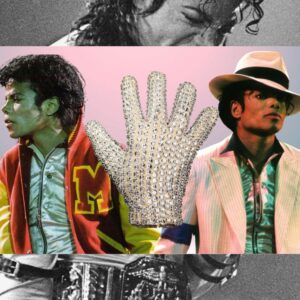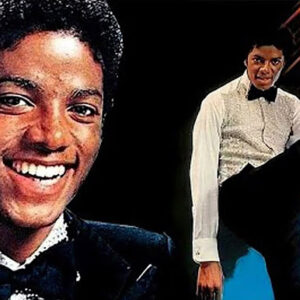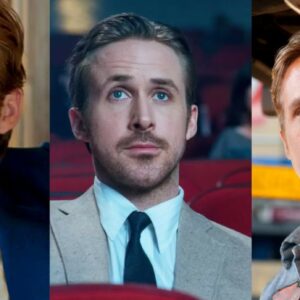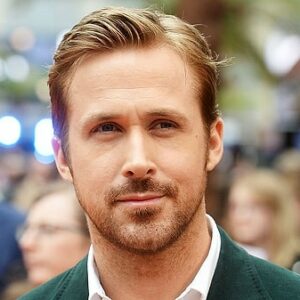Introduction
Cillian Murphy is one of those rare actors who manages to quietly captivate audiences with an intensity that lingers long after the credits roll. Whether he’s playing a stoic antihero in Peaky Blinders or an architect of dreams in Inception, Murphy’s performances are always memorable, deeply textured, and marked by a haunting sense of realism. In a recent interview with BBC Radio 1’s film critic Ali Plumb, Murphy reflected on his remarkable acting career, shedding light on his most iconic roles and the unique collaborations that have defined his journey.
Plumb, known for his engaging interview style, drew out Murphy’s thoughts on his career, from his breakout role in 28 Days Later to his work with visionary directors like Christopher Nolan. With a career spanning over two decades, Murphy shared insights that reveal not just his commitment to his craft, but also his evolving approach to storytelling.
Breakthrough Role: 28 Days Later (2002)
Murphy’s career took off with Danny Boyle’s 28 Days Later, a film that reinvigorated the zombie genre and introduced audiences to the quiet intensity of Murphy’s acting. In the film, Murphy plays Jim, a bike courier who wakes up from a coma to find London deserted and overrun by a terrifying virus.
“When I read the script, I was immediately struck by how different it was from anything I’d seen before. It wasn’t just a horror film; it was a story about survival, about human resilience in the face of catastrophe,” Murphy shared. Working with Danny Boyle was a defining moment for Murphy, as Boyle’s unique directing style encouraged collaboration and exploration. “Danny creates this environment where you’re constantly discovering things about the character and the story, and that process was incredibly liberating.”
The film’s success catapulted Murphy into the spotlight, but more than that, it proved that he was an actor who could anchor a film with his quiet yet powerful presence. “It was a life-changing experience, both professionally and personally. It opened doors and set the tone for the kind of roles I would be drawn to in the future.”
Mastering Complexities: Inception (2010)
Fast forward to 2010, and Murphy found himself in one of the most complex and visually stunning films of the decade: Christopher Nolan’s Inception. As Robert Fischer, Murphy played a pivotal role in the film’s labyrinthine plot about dreams within dreams. The film became a cultural phenomenon, with its ambiguous ending and intricate storytelling sparking debates among audiences and critics alike.
“What I love about working with Chris is that he challenges you as an actor in ways you don’t expect. Inception was such an ambitious project, not just because of the visual effects, but because of the layers of narrative. You’re playing a character who’s not just dealing with his own reality, but the realities of those around him. It’s like a puzzle, and Chris is the master architect,” Murphy explained.
Nolan’s collaborative approach allowed Murphy to immerse himself fully into the role, something he has come to appreciate in the director’s work. “Chris creates these worlds that are so meticulously crafted, and yet within that structure, there’s room for exploration. It’s rare to find that balance.”
Murphy’s understated performance in Inception perfectly complemented the film’s cerebral tone, and it solidified his reputation as an actor capable of navigating complex narratives with nuance and depth.
A Cultural Icon: Peaky Blinders (2013-2022)
Of course, no conversation with Cillian Murphy would be complete without discussing Peaky Blinders, the BBC crime drama that became a global sensation. As Tommy Shelby, the enigmatic leader of the Shelby crime family, Murphy delivered a performance that was both magnetic and terrifying. The show’s popularity soared, making Murphy’s portrayal of Shelby an indelible part of modern television.
“Tommy is such a complex character. He’s a man driven by his past, by his trauma, and by his ambition. But there’s also a deep vulnerability there, which I think is what makes him so compelling,” Murphy said. Playing Tommy for nearly a decade allowed Murphy to explore the many facets of the character’s psyche, and the actor credits the show’s creator, Steven Knight, for crafting such a rich, multi-dimensional world.
“What Steven has done with Peaky Blinders is create this very specific world that feels both real and mythic. There’s an operatic quality to it, but at the same time, it’s grounded in history and in the lives of these characters. It’s a dream role for any actor, really.”
The cultural impact of Peaky Blinders cannot be overstated. The show has influenced everything from fashion to music, and Tommy Shelby has become an iconic figure in television history. For Murphy, the experience was transformative. “It’s been a privilege to be part of something that resonates with so many people. I never imagined it would become what it has, but I’m incredibly proud of the work we’ve done.”
Exploring Darker Territory: Red Eye (2005)
While Peaky Blinders showcased Murphy’s ability to balance darkness with vulnerability, his role in Wes Craven’s Red Eye pushed him fully into the realm of psychological terror. As Jackson Rippner, a suave yet menacing antagonist, Murphy proved that he could play villains with chilling effectiveness.
“What was interesting about Red Eye was that it was essentially a two-hander. It was about the dynamic between these two characters in a confined space, and that creates a different kind of tension. It’s all about subtle shifts in power, in control,” Murphy reflected. Working with Wes Craven was a highlight for the actor, as Craven’s understanding of suspense and psychological horror brought out the best in Murphy’s performance.
“He was a master of his craft. He knew exactly how to create fear, not just through jump scares, but through atmosphere and character. It was a privilege to work with him, and I learned a lot about the precision of performance in a thriller like that.”
The Nolan Collaboration
One of the defining features of Murphy’s career has been his long-standing collaboration with director Christopher Nolan. From playing the villainous Scarecrow in Batman Begins to his roles in Inception and Dunkirk, Murphy and Nolan have built a creative partnership that has yielded some of the most memorable moments in modern cinema.
“Chris has this incredible ability to make you feel like you’re part of something larger than yourself. His films are always ambitious, but there’s also an intimacy to them, an emotional core that drives the story. That’s what makes working with him so rewarding,” Murphy said.
Murphy’s role in Dunkirk was particularly challenging, as he played a shell-shocked soldier struggling to survive the horrors of war. “It was a physically and emotionally demanding role, but what I love about Chris’s films is that they never feel gratuitous. Everything is there for a reason, and that’s what makes the experience so fulfilling as an actor.”
Nolan’s ability to blend spectacle with substance has made him one of the most respected directors in the industry, and for Murphy, the opportunity to collaborate with him has been a career highlight. “I’ve been fortunate to work with some incredible directors, but Chris’s vision and his attention to detail are unparalleled. I always know that when I’m working with him, it’s going to be something special.”
The Challenges of Character Transformation
Throughout the interview, Murphy emphasized the importance of character preparation and transformation. Whether he’s playing a post-apocalyptic survivor or a crime lord, Murphy’s dedication to understanding the psychological and emotional depths of his characters is evident in every performance.
“For me, it’s always about finding the truth of the character. You have to understand their motivations, their fears, their desires. Once you tap into that, everything else falls into place,” Murphy explained. His approach to acting is deeply rooted in his desire to tell stories that resonate on a human level, stories that reflect the complexities of life.
Murphy’s ability to disappear into his roles is one of his greatest strengths as an actor. Whether he’s playing a hero or a villain, there’s always a sense of authenticity in his performances. “I think the key is to approach every role with the same level of commitment, regardless of the size or scope of the project. You have to respect the character and the story, and give it everything you’ve got.”
Choosing Projects
As an actor who has worked across genres and with some of the most celebrated directors in the industry, Murphy is selective about the projects he takes on. For him, it’s not just about the role, but about the overall vision of the film and the collaboration with the director.
“I’ve always been drawn to storytelling. That’s what excites me. When I’m choosing a project, it’s about finding something that speaks to me on a personal level. It could be the script, the director, or the character, but there has to be something that makes me want to be a part of it,” Murphy said. He’s worked with a range of directors, from Danny Boyle to Christopher Nolan, and each experience has shaped his approach to his craft.
Conclusion
As the interview wrapped up, it was clear that Cillian Murphy’s career is marked by thoughtful choices, transformative performances, and a deep commitment to storytelling. Whether he’s navigating the dreamscapes of Inception or the gritty streets of Birmingham in Peaky Blinders, Murphy’s ability to inhabit complex characters has made him one of the most compelling actors of his generation.
